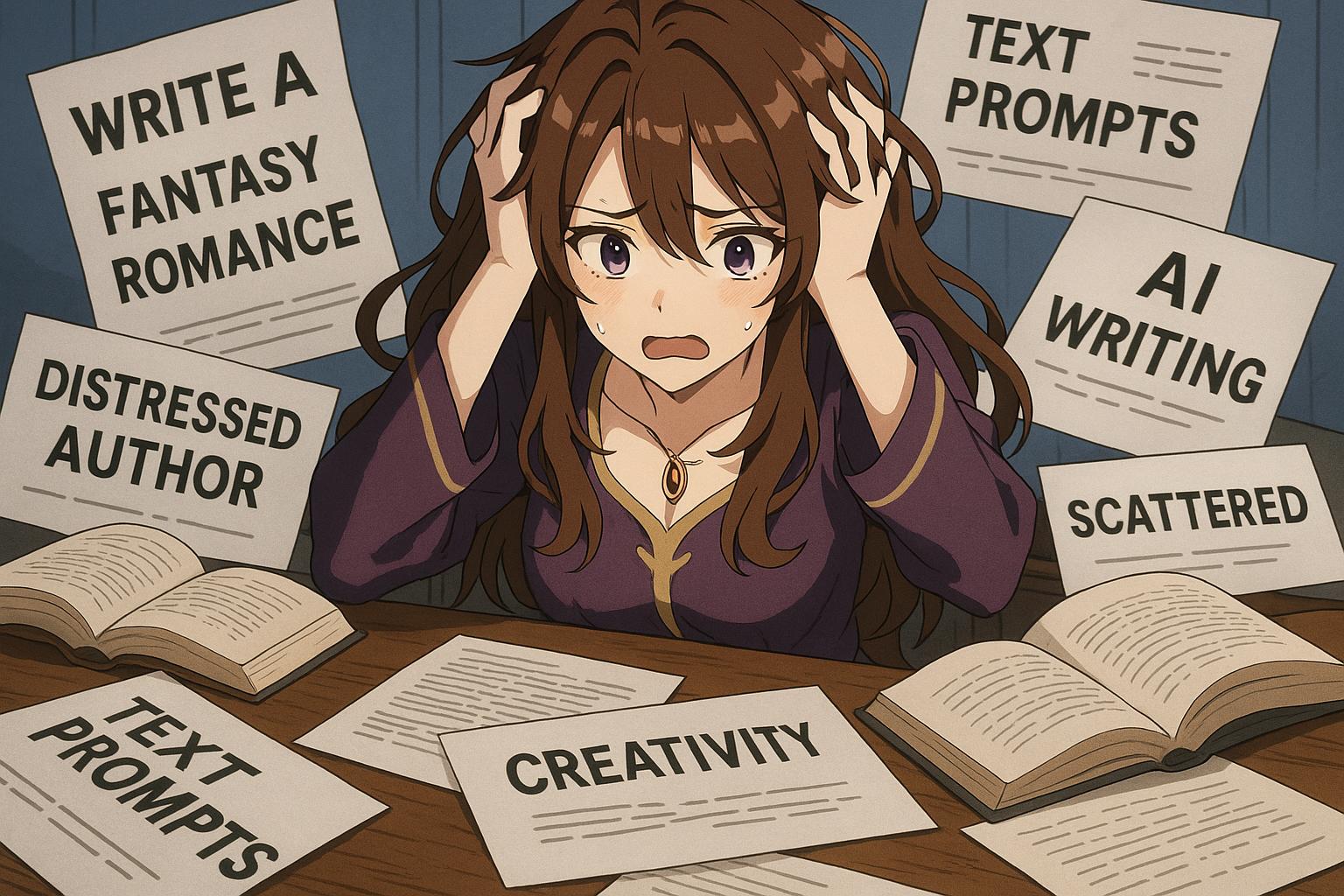In late May 2025, fantasy romance authors K.C. Crowne, Rania Faris, and Lena McDonald became embroiled in controversy after readers unearthed AI-generated prompts embedded in their recently released novels. As snippets of text circulated on platforms such as Reddit, Goodreads, and Bluesky, the excerpts revealed editorial annotations and revision notes that indicated the use of AI tools, such as ChatGPT, in their writing process.
This incident stood out not merely due to the integration of AI—an increasingly prevalent tool in modern writing—but because unfinished AI-generated notes appeared in the final published works. For readers expecting a polished narrative, encountering phrases that resembled rough drafts felt both disconcerting and deceptive. McDonald's "Darkhollow Academy" provided a particularly glaring example, where a passage seemed to reference rewriting a scene to mirror another author's style. One user commented, "It's like she copied and pasted directly from her AI draft and forgot to clean it up," highlighting the disconnect between author intent and reader expectation.
The response from the literary community was immediate and divisive. While some hailed the use of AI as a pragmatic strategy in the fast-paced realm of publishing, others felt a poignant sense of betrayal. A scrutiny-laden comment on Goodreads encapsulated this sentiment: "It's not just about AI. It's about trust. When you buy a book, you expect the voice behind it to be human, not a chatbot." A recurring theme in many critiques was the rapidity with which some authors were producing work—one reviewer pointed out that one author managed to release three full-length novels in under three months, suggesting a reliance on AI assistance.
The implications of this episode resonate deeply, especially in a genre where emotional depth and immersive world-building are essential. In an age where readers often form strong attachments to the storytellers behind their beloved narratives, doubts about authenticity can shatter the very illusions that bind reader to text. This incident underscores a larger ethical debate: should authors disclose their use of AI tools during the writing process? If an AI tool serves as a brainstorming partner or a means of drafting scenes, do readers have a right to be informed?
The publishing landscape is responding to these challenges. While it remains legal in both the US and the UK to publish AI-assisted works, differing copyright laws complicate matters. In the US, copyright only protects works that feature human authorship, leaving fully AI-generated content unprotected. Conversely, UK law permits computer-generated works to hold copyright for 50 years, attributing authorship to the individual steering the process.
While the legal definitions may be clearer, the ethical implications remain murky. The call for increased transparency is gaining momentum, particularly within the self-publishing sector, to preserve editorial integrity and bolster reader trust. Major players in the industry are navigating through this complexity. For instance, Amazon has mandated that authors use its e-book platform disclose any AI-generated material in their works. Following persistent concerns raised by groups such as the Authors Guild, this new regulation aims to ensure that consumers are well-informed about the nature of the content they purchase, although current protocols do not include public labelling of AI-generated works.
Prominent voices within the literary community are advocating for clarity around AI use in writing. Wiley has issued guidelines that encourage authors to employ AI as a supportive tool, rather than a replacement for their craft. These guidelines stress the importance of human oversight and recommend that authors disclose their use of AI in manuscript preparation.
As AI tools continue to evolve, the boundary between inspiration, assistance, and authorship will inevitably become more blurred. The incident involving Crowne, Faris, and McDonald serves as a lightning rod for broader discussions about the role of technology in literature. Readers are not necessarily demanding perfection in literary output; rather, they seek honesty and genuine care in the stories presented to them.
In this rapidly changing environment, fostering trust and preserving the emotional connection between author and audience is paramount. The literary world must navigate these emerging challenges with integrity and transparency, ensuring that storytelling remains a uniquely human endeavour.
Reference Map:
- Paragraph 1 – [1], [2]
- Paragraph 2 – [1], [3]
- Paragraph 3 – [2], [5], [6]
- Paragraph 4 – [1], [3]
- Paragraph 5 – [4], [6]
- Paragraph 6 – [5], [6]
- Paragraph 7 – [1], [3]
Source: Noah Wire Services
